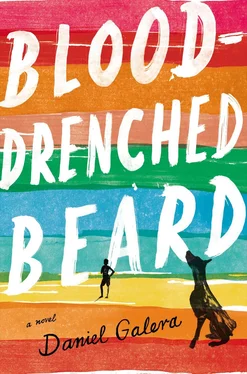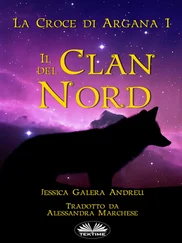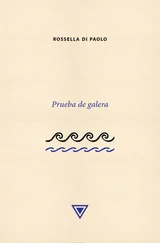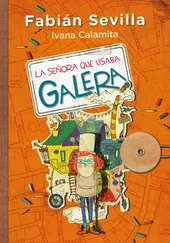Not much. Just what my dad told me and what you’re telling me now. I never met him. He disappeared before I was born. Apparently he was killed here.
I’ll be darned. You really look like him. I think he was taller. But you’re the bastard all over again. His spitting image.
He takes the photograph of his granddad out of his wallet and hands it to Mascarenhas. The singer flicks his cigarette butt onto the grass before taking it carefully with the tips of his fingers. A tambourine solo mixes with a noisy round of fireworks.
That’s him all right. A bit different, but I’ll never forget that face.
Different how?
I’m not sure. You meet half a dozen individuals in your life who make such a strong impression on you that you never forget them. People who give you the creeps. It’s like there’s something evil in them, but it’s an evil that’s only evil in the eyes of mankind, not in the eyes of nature. I remember another man like that who I met a few years back after I sang at a rodeo in São Jerônimo. Know where that is? Down around Pântano Grande, Charqueadas… The day after the rodeo I went to see some steers that a guy there wanted to sell to a friend of mine. The place was quite far out, in the hills. The man there said he had something to show me, a man who lived in a hut at the bottom of the valley. We rode down a craggy slope on horseback, and down at the bottom was this hut made of stone and clay, really old and beaten, almost falling apart, and in it lived an old man, hard to say exactly how old, with really wrinkled, dark skin, white hair down to his shoulders like this… he lived there without anything. Just a teapot and a dagger. He slept with his pigs. But the man had some money hidden somewhere nearby. I don’t know if it was a fortune, but it was a lot for the old guy to have buried. He had a son who had his eye on the money, a son who’d gone to the city and was waiting for his old man to die so he could get his hands on the cash, but the guy didn’t want anything to do with his son. He said he was a good-for-nothing and never wanted to set eyes on him again. He said the son had threatened to kill him and he’d been waiting for the son of a bitch to show up there for months. He had one of those turn-of-the-century derringers, falling to pieces, this big. He showed us the weapon. Rusted through. You could see it couldn’t fire a bullet anymore. It looked pretty sad, but the guy slept clutching his pistol, waiting for God knows how long for a showdown with his son, living there like a wild animal. And there was something in his eye, deep in his little eyes, that you could barely see. He had small, closed, deep-set eyes, but they gave off a fury that sent shivers down your spine. And your granddad gave me the same impression. Not the first time we met. Just the second, here in Garopaba. He’d changed. Don’t ask me what it was. It’s the night of the world. The kind of thing that gives me nightmares.
And do you know what happened to him?
To Gaudério?
To the old man in the hut.
He died hugging his derringer and was eaten by his pigs.
Fuck.
The son found his body but didn’t find his money. How about that?
And what about my granddad? Did you ever hear of him again?
I never saw him again after our fight. The next time I came here I thought it was strange that there was no sign of him. It wasn’t just that he’d disappeared. No one talked about him. No one remembered. But it couldn’t be true ’cause he was well known. People were lying. I don’t know why. I asked, Where’s that son of a bitch that sliced my arm open? I don’t know who you’re talking about. Gaudério. Did he leave town? Kick the bucket? I don’t know who he is, they all said. When you brought the subject up, folks would suddenly go quiet.
Dad said he was killed at a dance. Someone turned out the lights, and they stabbed him to death.
Really?
That’s what they told Dad at the time. He’d caused so much trouble, they decided to get rid of him. And they did it in such a way that no one would ever know who did it. Maybe that’s why to this day everyone pretends that nothing happened.
Makes sense. I didn’t know about that. Did you, Homero?
Nope. I’ve lived here for twenty-five years, and it’s the first time I’ve heard this story. But this place is full of legends. There’s even the ghost of a whale here.
But that kind of explains it, muses Mascarenhas. That could well be what happened. Especially since—
He stops.
Especially since what?
I don’t know if it’s worth mentioning, because I’m not sure if it happened. But someone must have told me back then, or I wouldn’t have remembered it just now. It’s not the kind of thing you dream up. They said Gaudério had killed a girl.
Really? Someone from here?
I don’t know. It was just something that someone said. I understood that it was a young girl. She’d been found dead, and people were saying that he’d done it.
How was she killed?
Kid, I told you, I really don’t know. I don’t even know if it’s true. But I don’t think your granddad was just a thorn in the side of a few people. He may well have done something bad and had it coming, and that’s how they settled the score. At the dance. But don’t take my word for it. I might be wrong. That’s the problem with booze. You get old and can’t remember things.
He sits there thinking about it and can’t say anything else. He had imagined his grandfather many ways but not as a killer, much less as a psychopath. The idea doesn’t sit well in his mind, and his body rejects it.
A girl was killed a few weeks ago in Imbituba, he says suddenly. Did you hear about it?
Índio Mascarenhas and Homero look at him, then at each other, then back at him.
The guy strangled her. Then he pulled out her eyes and cut off her lips.
The singer looks at his plastic cup and downs the remaining liquid in a single gulp.
His daughter reappears with the candy apple and two reais in change.
Keep the change, honey, says Homero. If it’s okay with your dad.
It’s okay. She knows how to handle money. I give her an allowance. There’s just one thing missing.
Thank you, she recites.
What about you, Gaudério’s grandson? What brought you to these parts?
I decided I wanted to live by the beach after my dad died. I’m a PE teacher. I’m a running and swimming coach.
Nice, nice… this is a good place to practice a sport, isn’t it? Mascarenhas smiles without a trace of sarcasm. His watery eyes are childlike and transmit a naïveté that contrasts with his figure. He doesn’t appear to have noticed the sudden change of subject and the small talk that has taken over the conversation.
This is paradise, says Homero. If you want quality of life, there’s no better place.
The sea is the primordial soup, says Índio Mascarenhas in a loud voice. The source of all life. From the sea we come, and to the sea we return.
True, he says, to be polite. Then the two men excuse themselves and say good-bye cordially. Homero says he has matters to see to later that night, and Mascarenhas, if he understood properly, is going to take his daughter through the crowd on his shoulders to the front of the main stage so she won’t miss the start of the Claus & Vanessa concert.
A man in a green and black camouflage wetsuit is carrying a bag of equipment out to a yellow boat waiting in the shallow water in front of Baú Rock. Another man is sitting in the boat, also wearing a wetsuit, holding the rudder in one hand and a spear gun in the other. He heads down the steps to talk to them. They are leaving to go fishing around the reefs a mile offshore. Although he doesn’t have a full set of spearfishing equipment, he asks if he can go with them, and they say yes. He goes inside and gets his vulcanized rubber flippers, swimming goggles, a packet of cream-filled cookies, and the harpoon that Bonobo gave him. He rubs sunscreen on his face and pulls on his Speedos and an old long-sleeved T-shirt. He locks the windows of the apartment, picks his way over the rocks, and wades out to the boat. The man in the camouflage wetsuit says he’ll be cold and lends him a waterproof jacket. The motor wakes up, gurgles, and begins to rumble, propelling the boat into the green waves. He asks their names and only now discovers that the one in the camouflage wetsuit, with his local accent and round face, is Matias, Cecina’s oldest son. The afternoon sky is heavy with clouds, and the wind picks up as they draw closer to Vigia Point. Antenor, Matias’s friend from Rio Grande do Sul, with a rock-star quiff and long face, accelerates the boat as fast as it can go. It skips over the ramps formed by the waves, slapping the ocean. He grips the safety ropes tightly and wedges his feet between the floor and the inflatable sides of the boat, feeling the cold water pelt his face. Matias offers him a seasickness tablet. He thanks him but refuses. The town disappears into the distance, and it becomes increasingly evident why the bay is considered a refuge from the violence of the open sea, why sailors, shoals of fish and whales converge on that stretch of coast seeking a calm that those on the land take for granted. The waves that seemed large from a distance look mountainous on the open sea, and a feeling of abandonment sets in as the continent grows distant. Foam sprays up over the rocky faces of the headland with gusto. Soon the reefs are visible. Few rocks actually break the surface, but around them is a large area of smaller waves. Black frigatebirds glide overhead with their narrow wings and forked tail feathers, scrutinizing the ocean and diving into the water like arrows.
Читать дальше












